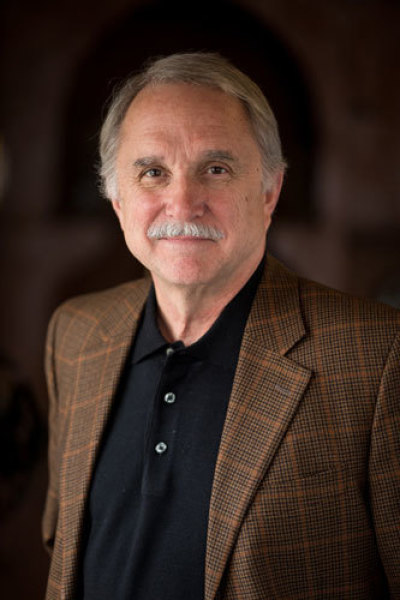Emerging new model of Christian higher education: Personalism

To say today is a time of transition and even crisis in higher education is not news. A torrent of demographic, economic, technological, and sociological change is washing over the landscape of higher education. When the current floods recede, profound changes will have occurred. As a Christian college and seminary president, I am called to lead and respond well to such unprecedented changes. As we make numerous and weighty decisions, the unrelenting question is, “What makes Christian higher education truly Christian?”
Obedience to the teachings of Jesus gives Christians a firm foundation for our lives that withstands the storms and floods we encounter. There is no idea more central to the teaching of Jesus than his repeated command to love one another.
For decades, most Christian institutions of higher education have defined their mission in terms of “the integration of faith and learning.” Tremendous effort has been exerted to bring faith into endeavors like teaching research and service. But could it be possible that the present tumult in our industry now exists to drive Christian educators to integrate learning with something Scripture describes as even more foundational to our lives than faith?
I am increasingly convinced that a new model of Christian higher education is emerging. This new model will have a new core; namely, the integration of love and learning. Indeed, Jesus taught that loving God and “your neighbor as yourself,” are the greatest commandments.
What comes closest to embodying what I envision as the integration of “love and learning,” in higher education is personalism, which draws from several belief traditions. Personalism emphasizes the importance and dignity of human individuals. While certain strands of personalism run counter to traditional biblical teachings, many interpretations reinforce and even celebrate what Christians believe; most significantly, that each is created in the image of God.
This new model that integrates love and learning will intentionally orient students to the reality of the imago dei in every individual and motivate them to respond to others with the love of Christ. This new model of Christian higher education simply widens the locus of response to the message of the gospel from the heart and the head to the heart, head and hands.
An applied form of personalism that integrates Christian love and learning can make a difference in the emerging new world of higher education in three important ways.
First, there is a need for new business models that make higher education accessible to all persons. As private colleges, Christian colleges regularly utilize a cost structure that prohibits many from accessing or even considering Christian higher education. Some of the financial gap that currently exists is actual; some of it is perceptual, but both contribute to the daily widening gap. The movement towards “tuition free” public higher education in some states has further exacerbated this gap.
Even successful philanthropic initiatives struggle to keep pace with the rising costs of education. A close look at giving trends reveals that “transformative financial gifts” received by institutions do not absolve them of ongoing operational challenges. Innovative and widespread partnering will become necessary to “love our neighbor as ourselves” in our efforts to fund Christian higher education. Anything short of this will make Christian higher education available to only a select few, excluding the very populations that will shape the latter half of this century.
Second, there is a need to instill hope in a fatherless generation. The most recent U.S. Census reported that approximately 24 million children live in fatherless homes. The National Principal’s Association reports that 71% of high school dropouts come from fatherless homes. Even for those who make it to college, the graduation rates of certain segments of the American population are nothing short of appalling. From my experience as an educator, it is clear that before we can instill knowledge in these students, we must instill something far more visceral and that is hope.
Student development programs and services are typically administrated by deeply committed professionals who serve effectively. Still, a new model of higher education based in Christian love and personalism will enlist the efforts of every staff and faculty member to engage the labor-intensive work of supporting spiritual and emotional healing. The healing, development and personal transformation of students will be a central value in every endeavor of the institution.
In my opinion, nothing will more effectively differentiate the value of a Christian college education than its capacity to embrace a generation of fatherless students — to love them and to instill hope in them. Unless such a model becomes operational on our campuses, we will continue to see single digit graduation rates among certain student demographics and masses of students leaving colleges, once again feeling abandoned.
Third, there is a need for a model in which service-learning is normative. I am deeply grateful for our many graduates who serve in a wide array of professional fields. But the key word is “serve.” I am moved by graduates who enter the professional world as missionaries, not as mercenaries.
To ensure that this happens with increasing frequency, this idea of serving must be central to the college experience. My observation is that the opportunity to serve is often experienced by college students as merely something of a “change of pace.” Service-learning trips and projects are departures from the norm of classes and research projects. However, the integration of love and learning in Christian higher education will develop a model that would profoundly elevate the role of service.
We have long understood that certain proficiencies must be treated as basic competencies of a college education. Critical thinking and writing are among these. A new model of Christian higher education based in love and personalism will include service as a core competency.
Christian college graduates with well-developed, and internalized personal faith can move into neighborhoods and communities and either fit all too well into the status quo, or worse, retreat to enclaves that become isolated and eventually irrelevant. Christian college graduates with well-developed ethic of service based in love will move into neighborhoods and communities and immediately have the kind of impact that their Master said they would. “Anyone who believes in me will do the same works I have done, and even greater works, because I am going to be with the Father. (John 14:12b)”. A new model of Christian higher education based in love and personalism will mobilize a new generation to serve a needy world, in the name of Christ.
While some of these tactics are speculative, the needs that prompt my speculation are not. As such, to become a Christian college that applies personalism by integrating love and learning is truly my aspiration for my institution.
“For now, we see in a mirror indirectly, but then we will see face to face. Now I know in part, but then I will know fully, just as I have been fully known. And now these three remain: faith, hope, and love. But the greatest of these is love.” (1 Cor. 13 12-13, New English Translation Bible)
Dr. Michael G. Scales is president of Nyack College and Alliance Theological Seminary in New York City.




























